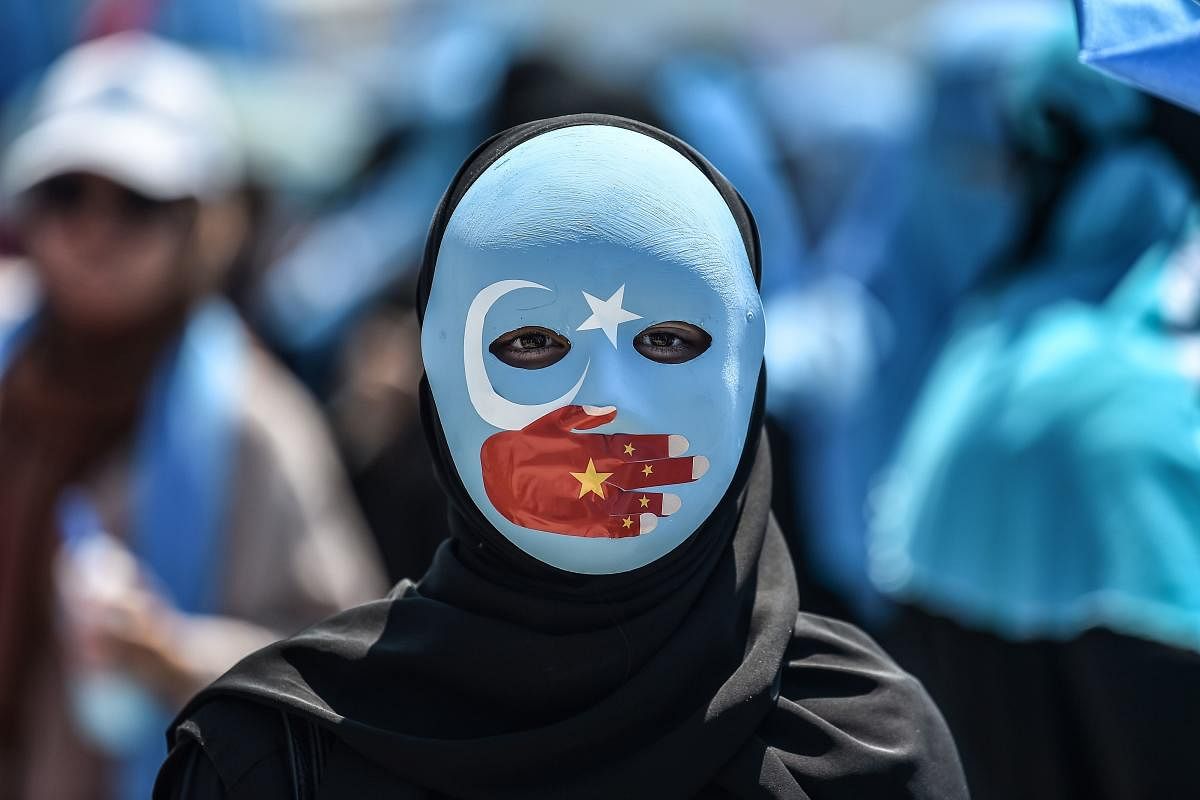
China is guilty of massive human rights violation in Xinjiang province, which borders the Tibet Autonomous Region and India’s Leh district to the south, Mongolia to the east, Russia to the north and Kazakhstan, Kyrgyzstan, Tajikistan, Afghanistan, Pakistan and India to the west.
The border province is home to several ethnic groups, namely the Uyghur, Han, Kazakhs, Hui, Tajiks, Kyrgyz, Mongols and Russians. The Uyghurs have long complained about pervasive discrimination, religious repression and cultural suppression under Chinese Communist rule. Beijing’s six-decade-old policy designed to limit Uyghur political and cultural rights has come a full circle with the clash of interests between the State and society today.
In April 2017, the Chinese government accused the Uyghurs, who are dominant in the Xinjiang Uyghur Autonomous Region (XUAR), of strong “religious” and “politically incorrect” views. Thereafter, several Uyghurs have been detained in “political re-education camps” throughout the XUAR.
A recent report that on June 27, around two dozen Uyghur Muslims were killed in these re-education camps has sparked ethnic tensions in the province. Since summer 2017, the Chinese government has introduced these re-education camps in Xinjiang autonomous province. These detention centres have some aspects of a typical prison.
Thus, ethnic tensions in the XUAR of China are on the rise, with attendant risk that it could spread across the border to neighbouring regions. Some Uyghurs were captured in armed combat along with the Afghan Taliban in Afghanistan and Tehreek-e-Taliban Pakistan in Pakistan, and it is very likely that several Uyghurs are in the ranks of Islamic State.
In a Washington Post on May 17, Kayrat Samarkand, a Uyghur from Xinjiang, who had been detained earlier, said his only “crime” was being a Muslim who had visited neighbouring Kazakhstan. This was adequate grounds for the Chinese police to detain him and aggressively interrogate him for three days, thereafter dispatching him in November to a “re-education camp” for three months in Xinjiang.
According to a former internment camp inmate, Muslims were detained for “re-education” by China‘s government and made to eat pork and drink alcohol. In Xinjiang today, to grow a beard, pray regularly or contact people overseas can all lead to being sentenced to prison or be sent to the so-called “re-education camps” to undergo “thought transformation through education”.
According to Chinese official evidence, which was leaked, a million Muslims, particularly Uyghur Muslims, have been interned without legal proceedings. Former internees describe vast facilities that can hold nearly 6,000 persons, which are heavily secured with barbed wire, surveillance systems and armed police.
The government tenders confirm these reports and provide detailed insights into the sizes and features of re-education facilities throughout the region. Those interned are subject to intense indoctrination procedures that force them to proclaim “faith” in the Chinese Communist Party and denigrate large parts of their own religion and culture.
Another Uyghur Omir Bekali, one among perhaps a million people reportedly arrested and held in mass re-education camps, said he was detained without trial or access to a lawyer and forced to disavow his beliefs, besides praise the Communist Party. Zumret, a Uyghur political analyst based in Norway, reports that the Chinese government is rapidly building “burial management centres,” complete with crematoria, throughout the region in a bid to subvert ethnic traditions and remove the religious context from funerary rites.
American lawmakers Marco Rubio and Chris Smith, who head the bipartisan Congressional Executive Commission on China, said recently that as many as 500,000 to a million people are, or have been, detained in the re-education camps, calling it ”the largest mass incarceration of a minority population in the world today,” while a historian has called it “cultural cleansing”.
Radio Free Asia (RFA) research scholar Adrian Lenz confirmed the veracity of the reports which highlight that China’s Muslim-majority Xinjiang region is also home to “re-education” camps where over 200,000 “suspects” are under detention. RFA, in telephonic interviews with Uyghurs, describes a significant number of Uyghurs in detention camps and even described overcrowding in some facilities. In retaliation to the news about Uyghurs, on March 2, five relatives of reporters from RFA’s Uyghur service have been detained by Chinese authorities. RFA said families were targeted in retaliation for its coverage of Beijing’s crackdown on ethnic Uyghurs.
‘Surveillance State’
The Xinjiang region of China today reflects an extreme manifestation of an emergent ‘Surveillance State’ in the all-powerful regime of Xi Jinping. Recently, China has deployed a flock of high-tech drones disguised to look like birds to step up surveillance levels in Xinjiang. Each drone is designed to move like a bird with flapping wings and carries on board a small camera that beams images back to its controllers.
Resource-rich Xinjiang is on the boil for years following unrest among Uyghur Muslims over the increasing settlements of majority Han Chinese from other provinces. The province has witnessed some of the deadliest terror attacks which also spread to other parts of China. The attacks were officially blamed on the East Turkistan Islamic Movement (ETIM), a banned militant group linked to the al-Qaeda.
Clearly, China’s authoritarian style of governance has manifested in the Xinjiang region to maintain China’s territorial integrity at any cost. It has successfully used strong-arm measures to suppress internal dissent and contain culture and religion that could destabilise governance. President Xi Jinping is worried about regime stability and has earlier cited the collapse of the Communist Soviet Union as a fate that China should avoid at any cost.
(The writer is Assistant Professor, Department of International Studies & History, Christ Deemed to be University, Bengaluru)